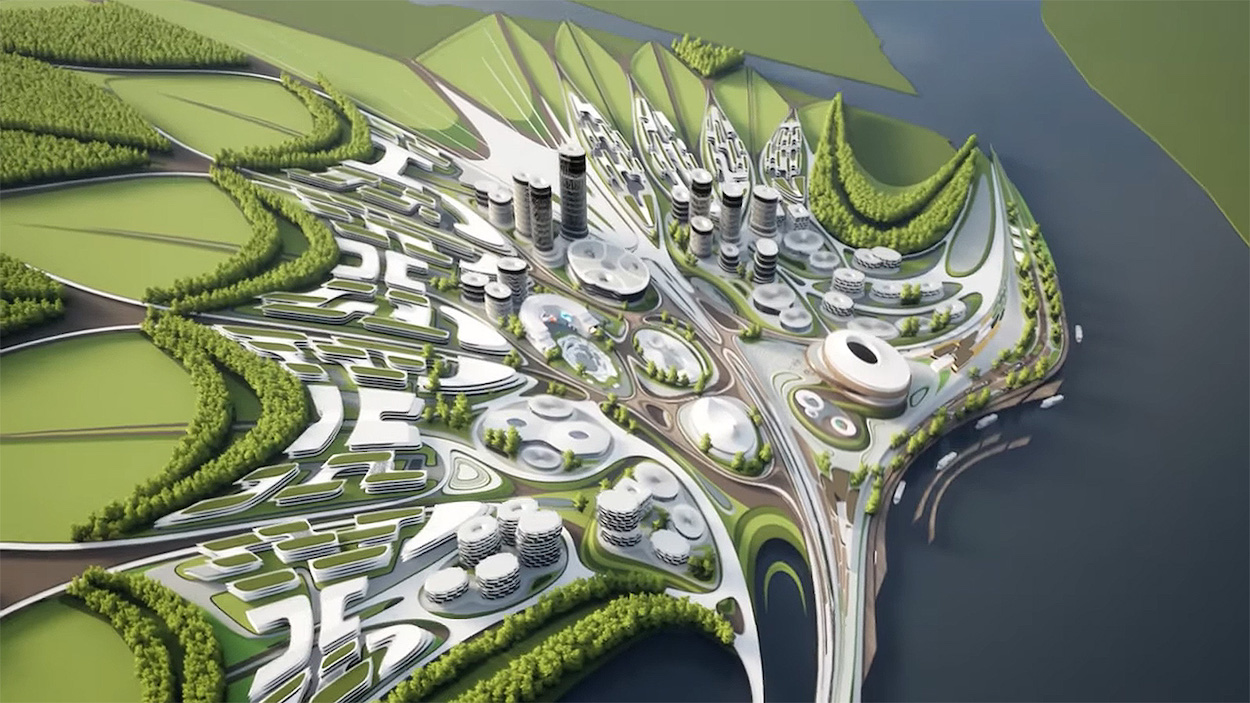Last chance: The 14th Architizer A+Awards celebrates architecture's new era of craft. Apply for publication online and in print by submitting your projects before the Final Entry Deadline on January 30th!
As the world is waking up and realizing that we are in the throes of an environmental crisis, architects are increasingly turning to mass timber as a more sustainable construction method than traditional 20th-century structural approaches, like concrete and steel. Yet, increasingly intricate and innovative light-frame wooden constructions that use increasingly complex joints are also proliferating. The 10th Annual A+Awards winner’s gallery comprises a range of projects with exquisite details, new design thinking and inspiration in all forms and sizes, and many of this year’s winners are experimenting with timber to create sculptural works of architecture.
Wooden construction has been around for millennia and continues to remain popular and relevant even today. Architects are looking at the material for its durability, versatility and potential for reuse. Designers are bringing traditional construction knowledge to create projects that can employ local communities and keep cultural knowledge alive. From steamed timber pieces to reclaimed wood, these architects are making a joint effort to create awareness around finite natural resources.
Botanical Pavilion
By Geoffrey Nees, Kengo Kuma and Associates, Melbourne, Australia
Popular and Jury Winner, 10th Annual A+Awards, Architecture +Art
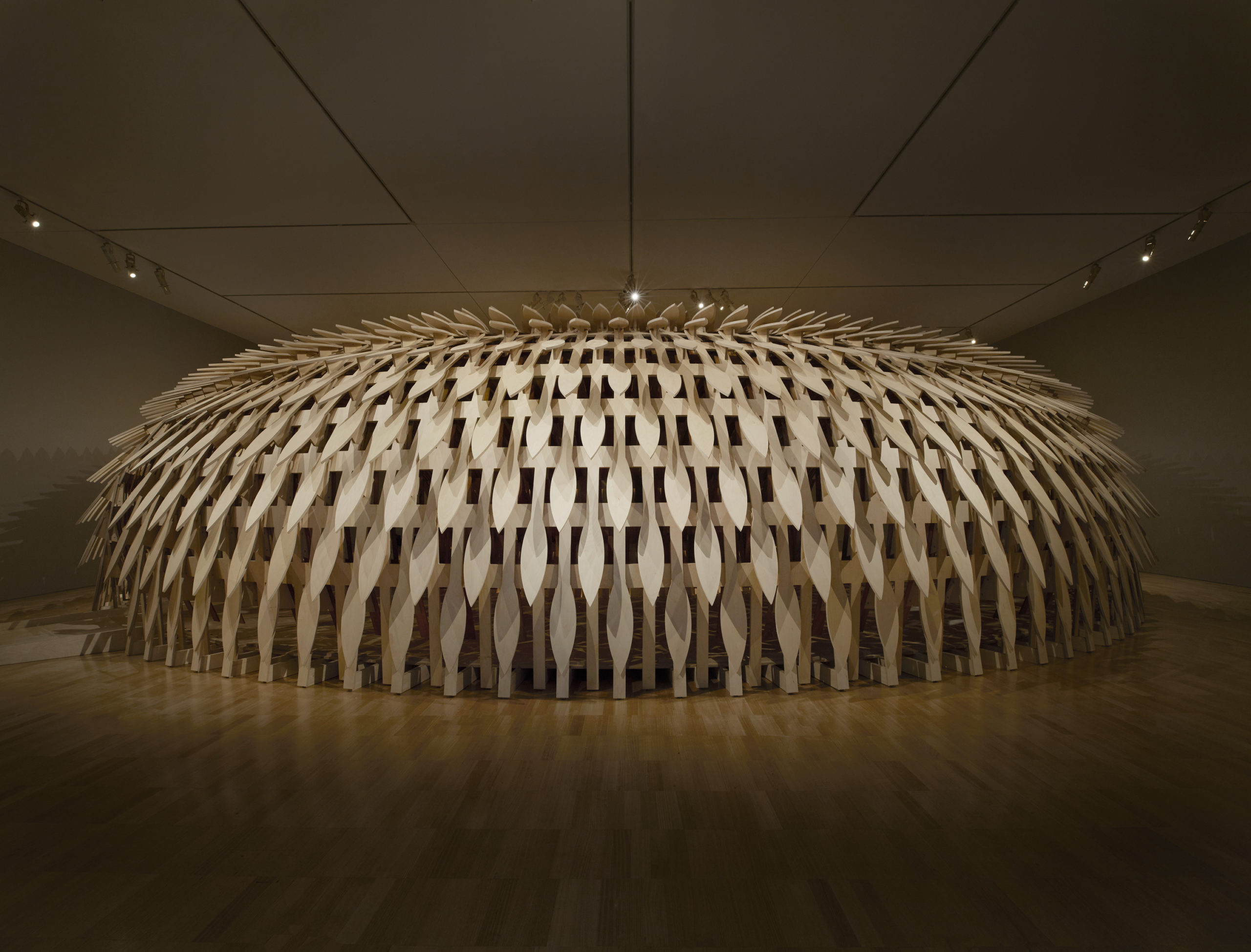
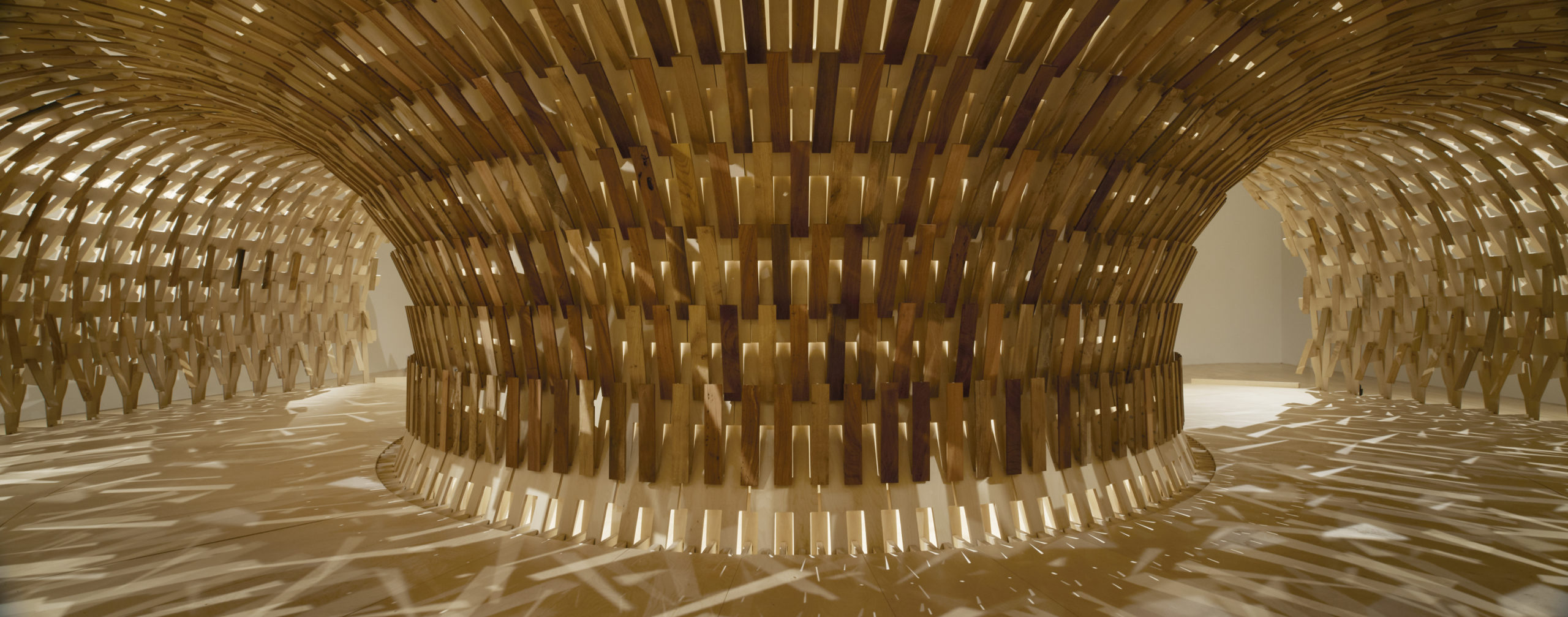 The pavilion is a collaboration between architect Kengo Kuma and artist Geoffrey Nees. The tessellated circular form ties in with Korean artist Lee Ufan’s painting Dialogue 2017, which is at the end of this walkway. It aims to provide a space for contemplation and connects visitors to the artwork. Pieces of reclaimed wood obtained from Melbourne’s Botanical Gardens are interlocked using Japanese construction techniques that hold the structure up with the help of tension and gravity. The wood used comes from some trees that came in before European settlement as well as those that are just a few decades old. These pieces were selected by tone as opposed to type and age to do away with reductive science methods and align with indigenous ideologies.
The pavilion is a collaboration between architect Kengo Kuma and artist Geoffrey Nees. The tessellated circular form ties in with Korean artist Lee Ufan’s painting Dialogue 2017, which is at the end of this walkway. It aims to provide a space for contemplation and connects visitors to the artwork. Pieces of reclaimed wood obtained from Melbourne’s Botanical Gardens are interlocked using Japanese construction techniques that hold the structure up with the help of tension and gravity. The wood used comes from some trees that came in before European settlement as well as those that are just a few decades old. These pieces were selected by tone as opposed to type and age to do away with reductive science methods and align with indigenous ideologies.
Timber Bridge in Gulou Waterfront
By LUO studio, Jiangmen, China
Jury Winner, 10th Annual A+Awards, Architecture +Wood
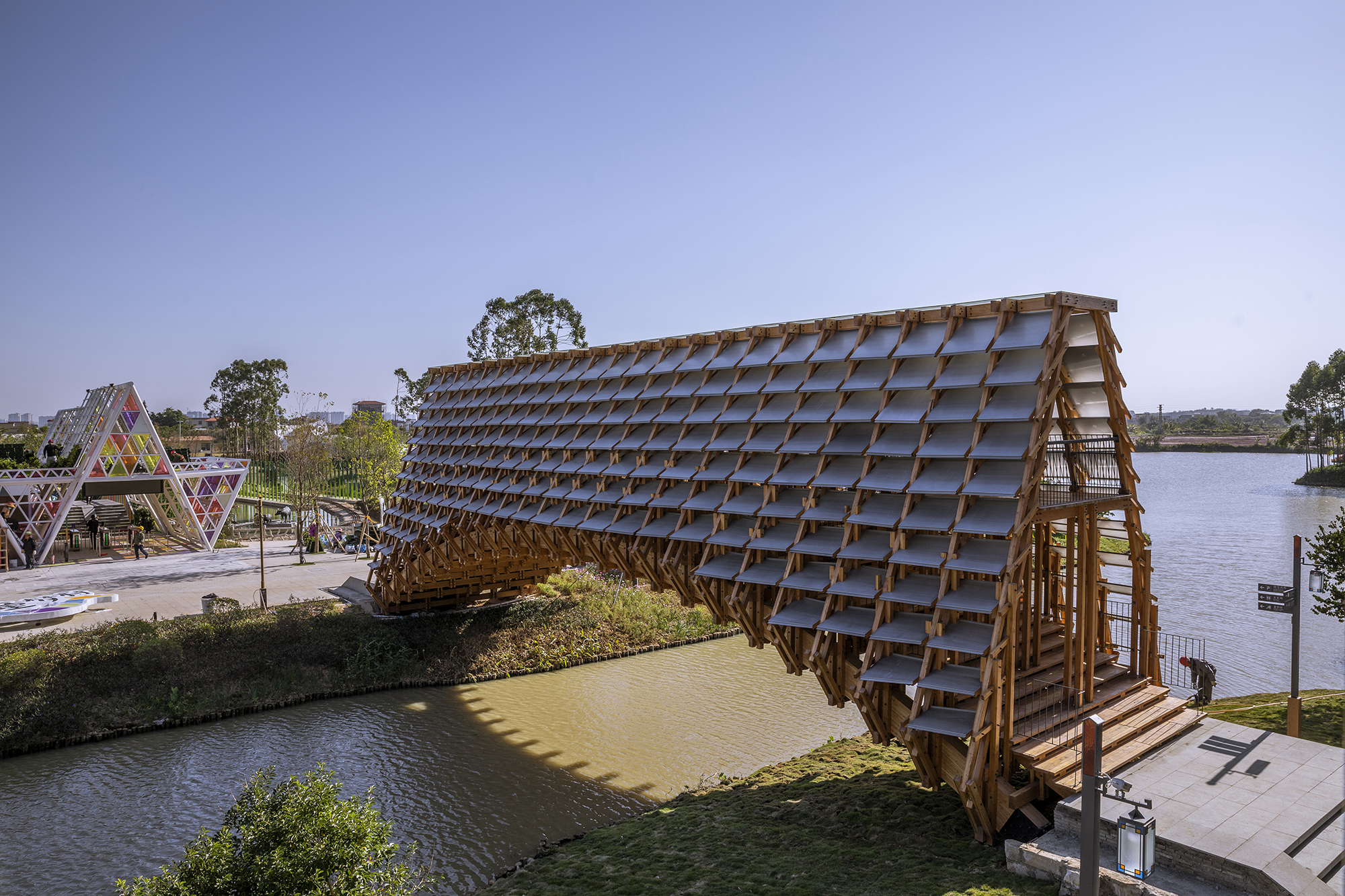
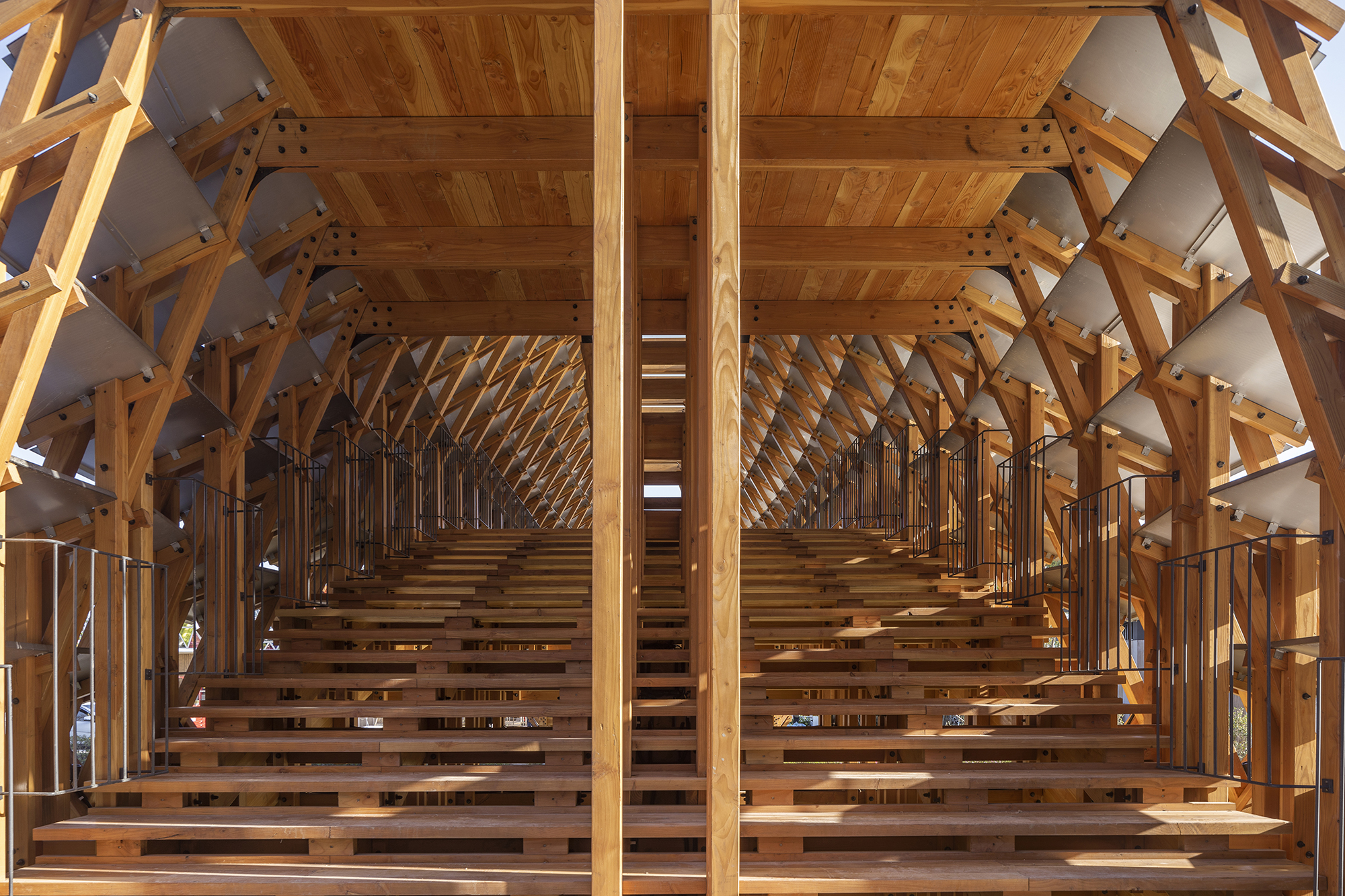
Images by Jin Weiqi
The Gulou Waterfront in an eco-cultural tourism project that hopes to sustain the traditional fishing practices in Jiangmen. Given that the area contains several small fishing ponds instead of a large water body, they need to be connected by bridges for easy movement of both people and fishing boats. The bridge featured above follows the principles of ancient covered bridges to create more stability and also reduce exposure to sun and rain. Three main arched beams carry the main loads of the bridge and they are then interlocked with several other wooden components to create sub-beams and the two levels. Despite the curved base, the roof of the bridge is a flat rectangle. Layers of metal plates cover the two sides of the bridge, much like armor.
Re-Emerge Pavilion
By Architectural Association, London, United Kingdom
Popular Choice, 10th Annual A+Awards, Architecture +Collaboration
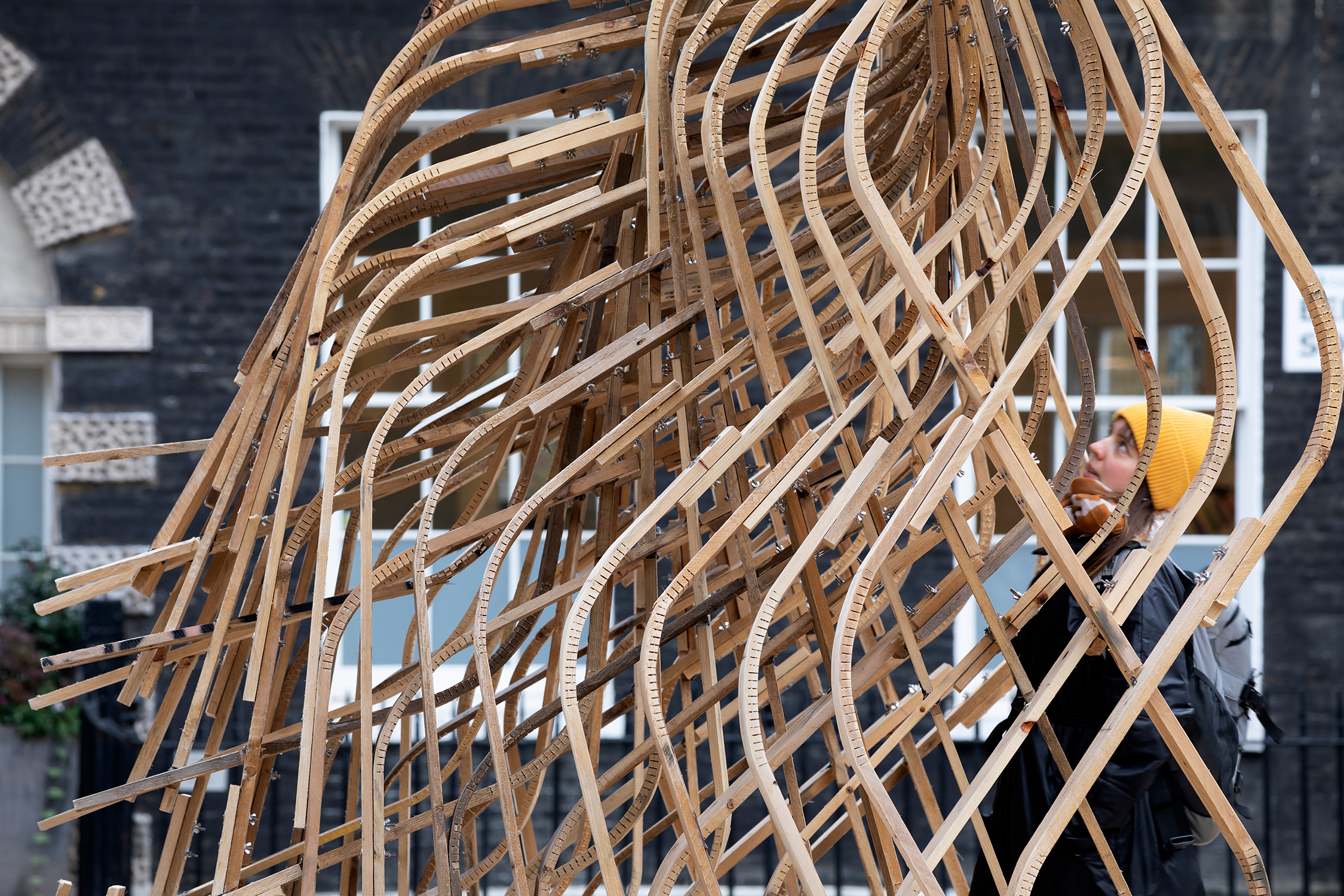

Images by NAARO – Architectural Photography Studio
This pavilion tackles the problem of limited resources that the entire world is grappling with. The team from Architectural Association, in collaboration with Hassell Studio, wanted to emphasize the importance of using reclaimed wood from old construction to promote sustainable design thinking. The reclaimed wood pallets are scored, steam-bent and assembled using lap joints to create this complex organic form. At the end of its display, the pieces of timber were sent back to the recycling facilities it was sourced from to create new opportunities for reuse.
Yuntai Ice Chrysanthemum Display
By LUO studio, Henan, China
Jury Winner, 10th Annual A+Awards, Architecture +Branding
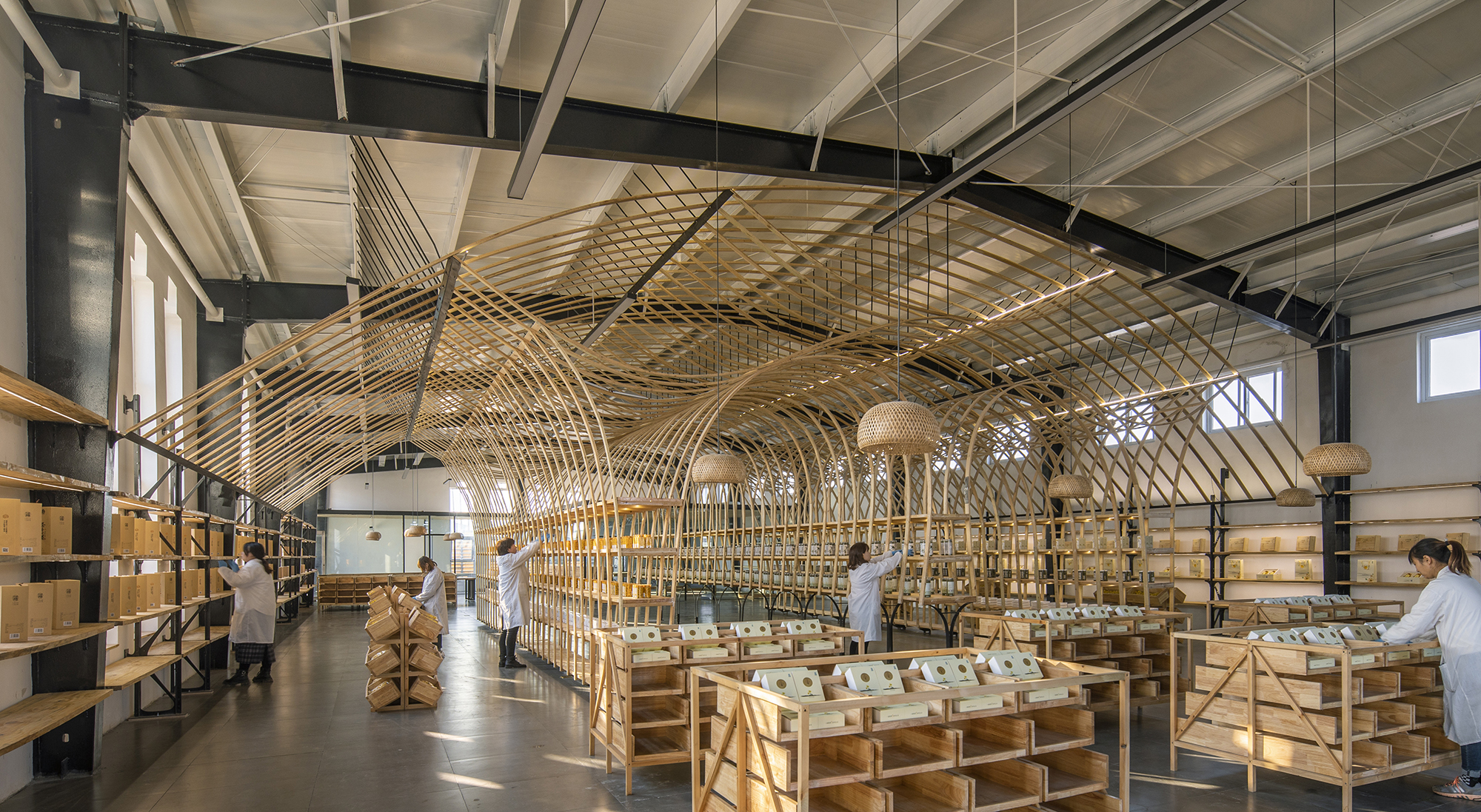
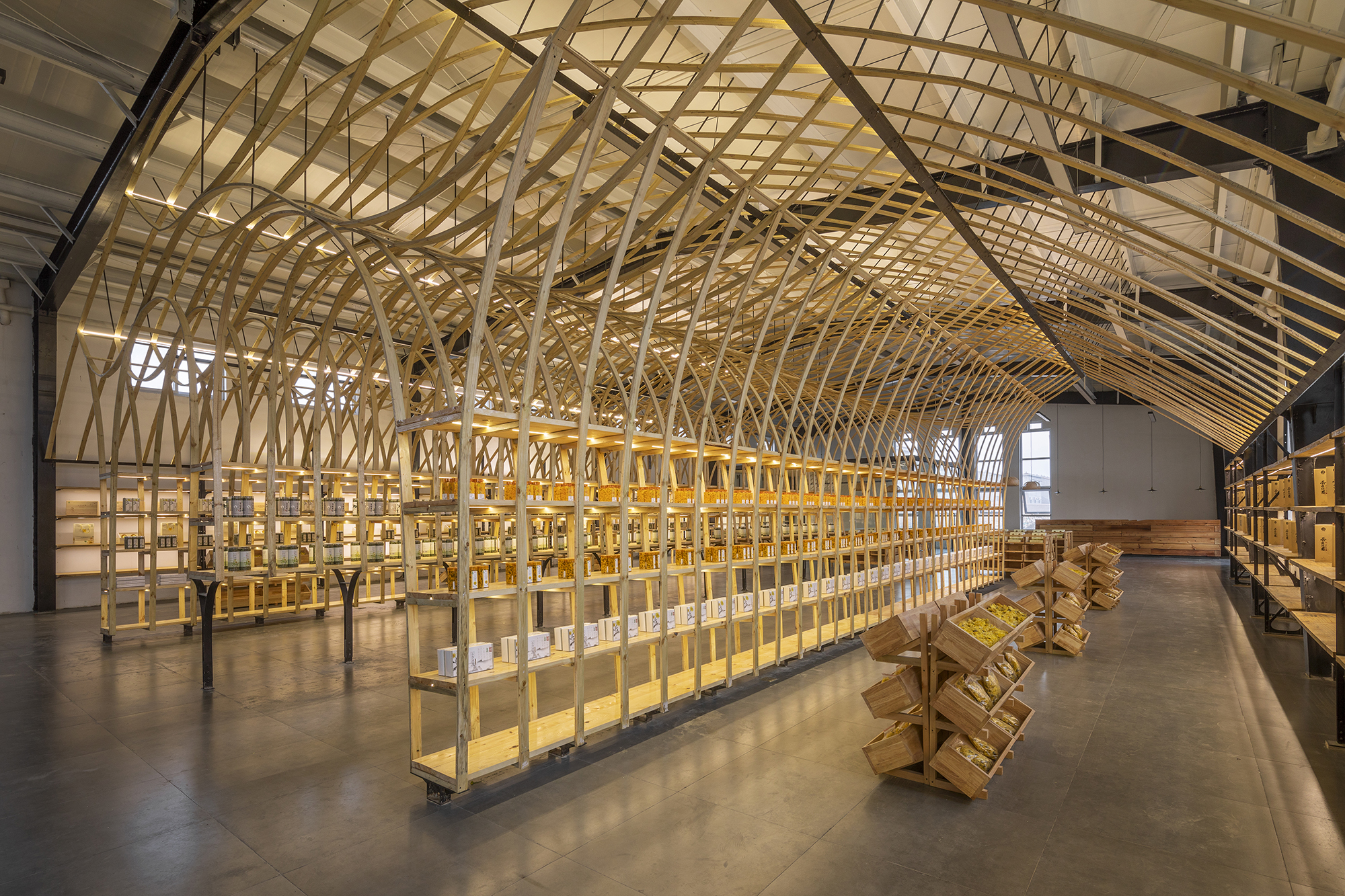
Images by Jin Weiqi
Also part of larger plans to revitalize rural industries, this exhibition space showcases local ice chrysanthemum products. The pandemic caused losses for locals and so, this display had to be designed with a very small budget. To do so, the designers used readily available materials and simple construction techniques. Thin wooden panels are bent and connected, creating an intricate structure that is supported by steel portal frames. The wooden members create canopies that guide circulation and the bases of these arches make room for shelving to display products. Overall, the assembly creates a light cocoon that is bright and inviting. The natural tone of the material contributes to the sensation of warmth found in vernacular living.
AB McDonald Elementary Outdoor Classroom
By Idaho Design Build – University of Idaho, Moscow, Idaho
Jury Winner, 10th Annual A+Awards, Architecture +Collaboration
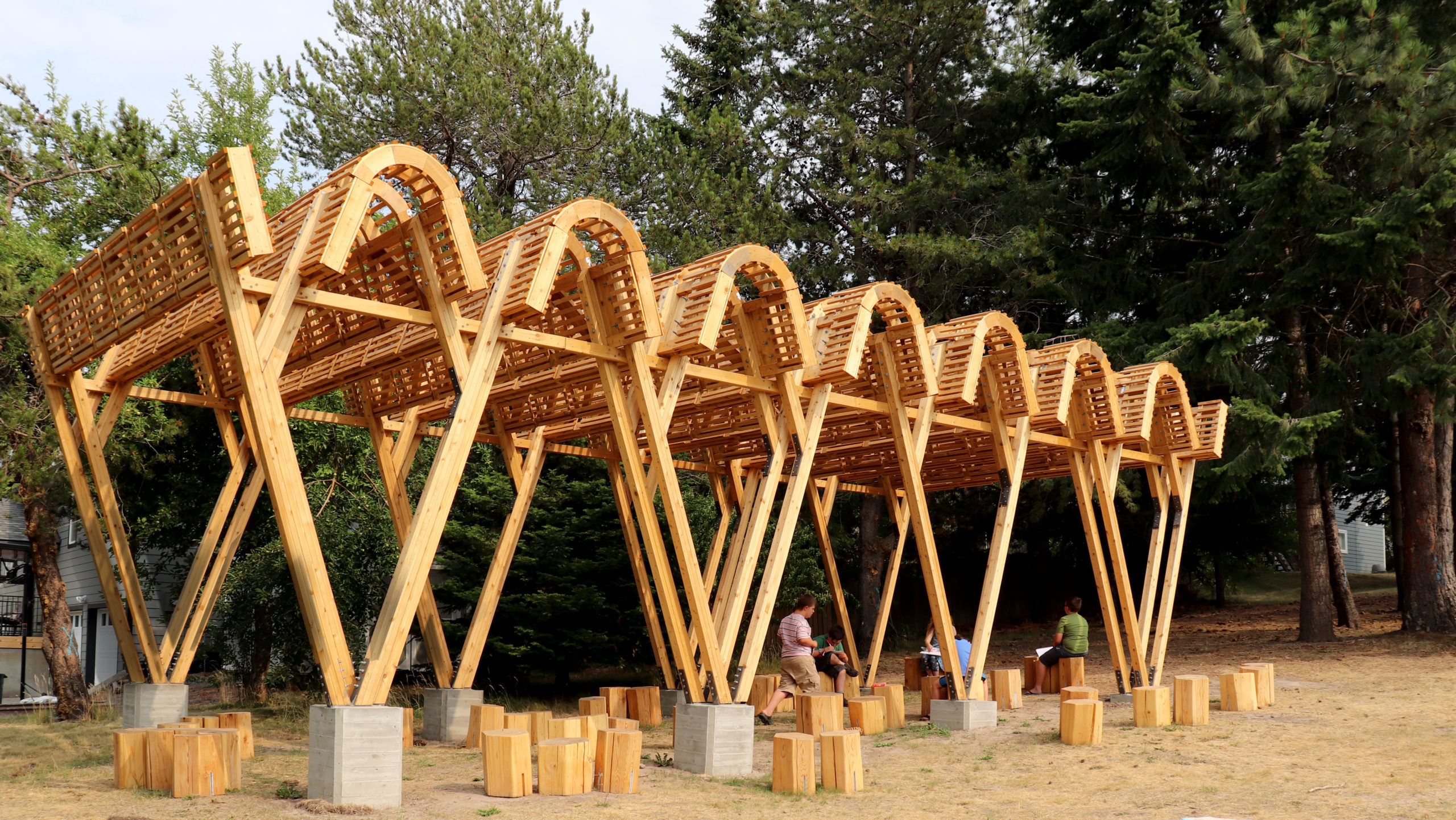
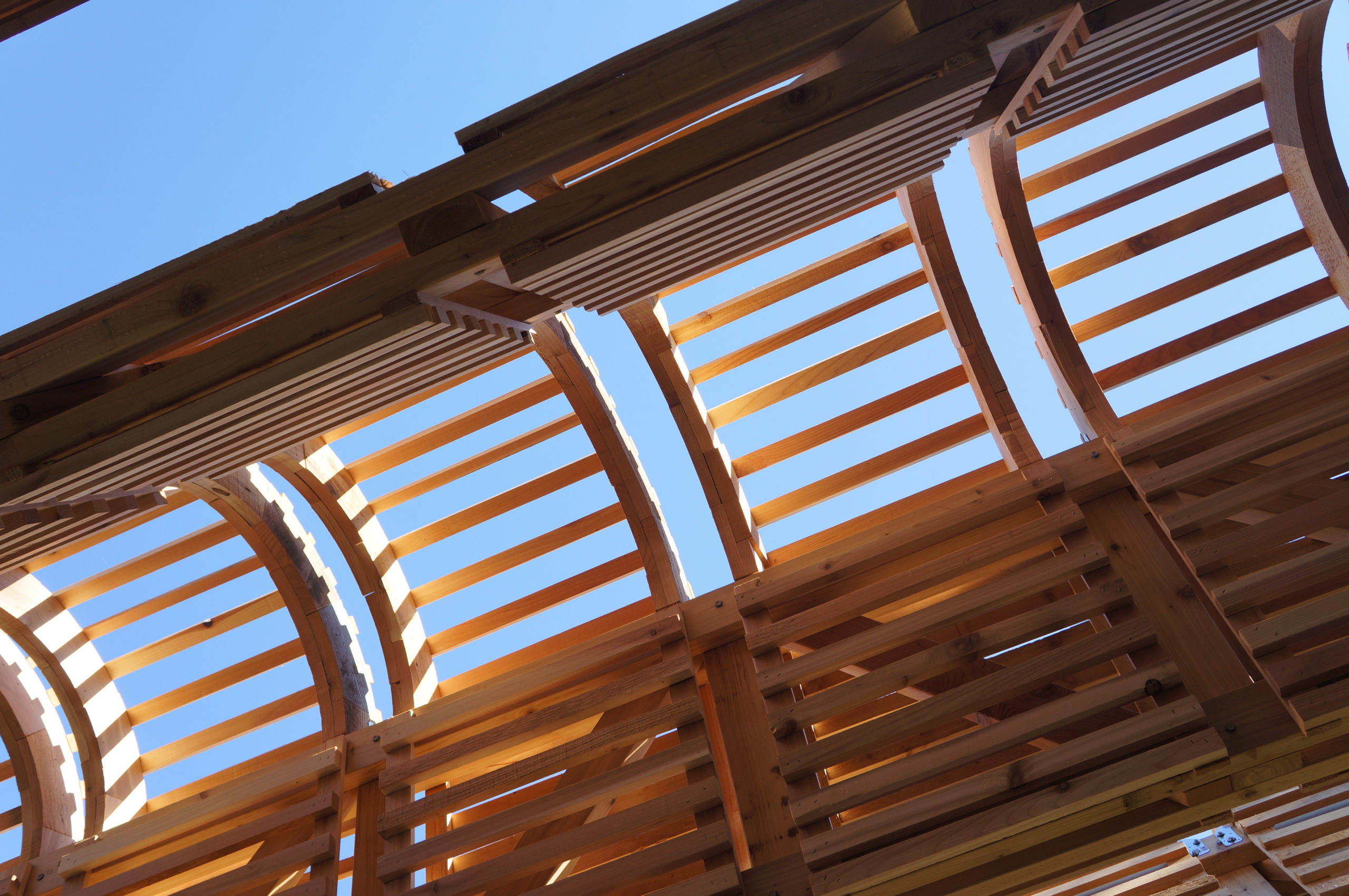 This project is one of the many that was born from the needs that emerged during the pandemic. Design students from the University of Idaho joined hands with the local school district to create a space for outdoor learning and activities. The A.B. McDonald Elementary previously had an outdoor learning area that was removed in 2018 but the pandemic prompted them to rebuild an outdoor space where students could learn in a socially distanced manner. The canopy structure is designed to be enjoyable and durable to cater to several classes over the coming years.
This project is one of the many that was born from the needs that emerged during the pandemic. Design students from the University of Idaho joined hands with the local school district to create a space for outdoor learning and activities. The A.B. McDonald Elementary previously had an outdoor learning area that was removed in 2018 but the pandemic prompted them to rebuild an outdoor space where students could learn in a socially distanced manner. The canopy structure is designed to be enjoyable and durable to cater to several classes over the coming years.
Small barrel vault forms make up the roof of the structure. Instead of being fully covered, small wooden members create a cage-like pattern. These curved systems are connected to angular supports that join at the base. To match the materiality of the structure, the seating below is constructed using stubs of wood that are shaped into hexagonal forms. These modules have built in metal channels on one side to connect them to each other and create larger seating when needed.
Last chance: The 14th Architizer A+Awards celebrates architecture's new era of craft. Apply for publication online and in print by submitting your projects before the Final Entry Deadline on January 30th!
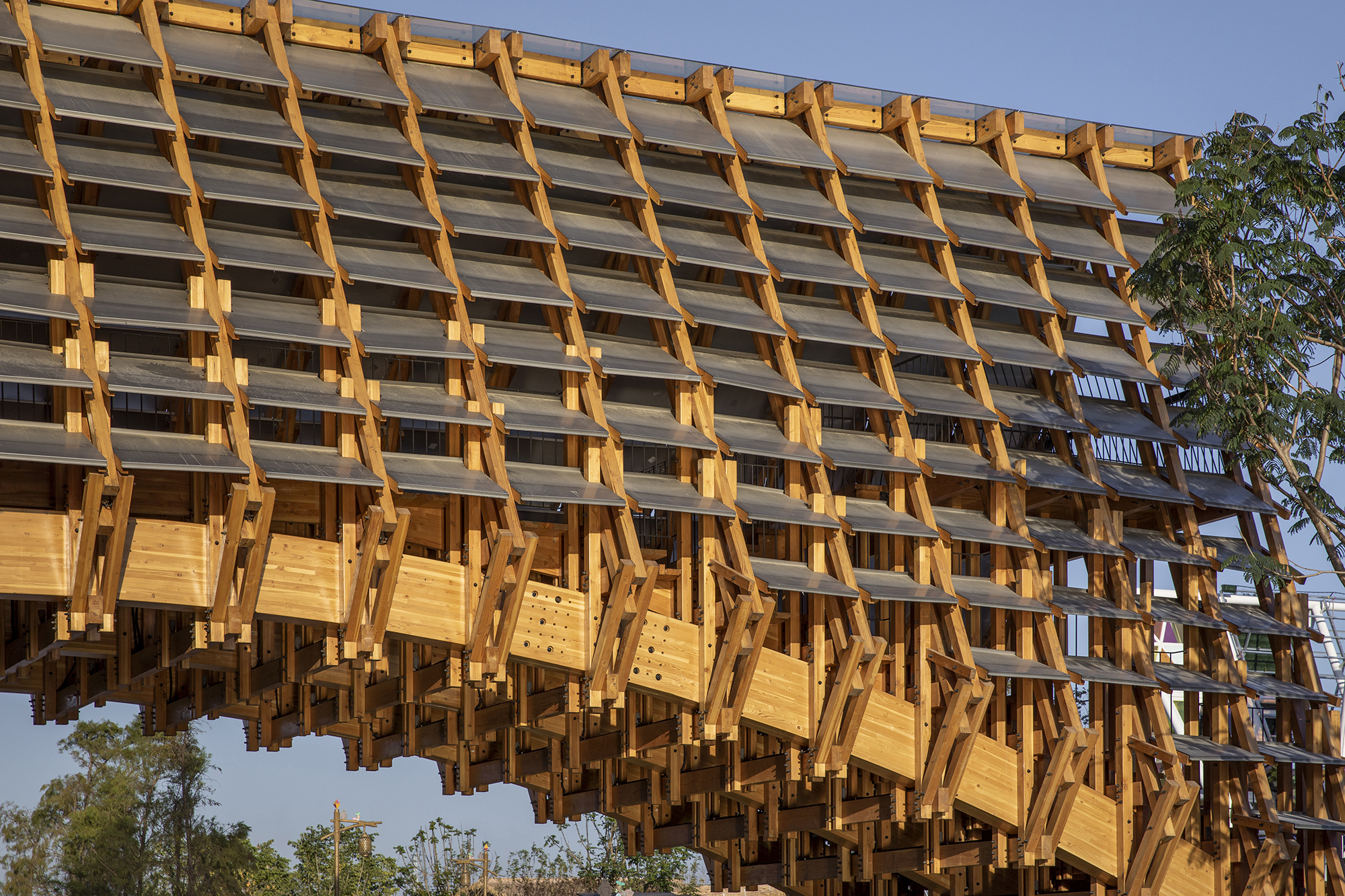
 Botanical Pavilion
Botanical Pavilion 
